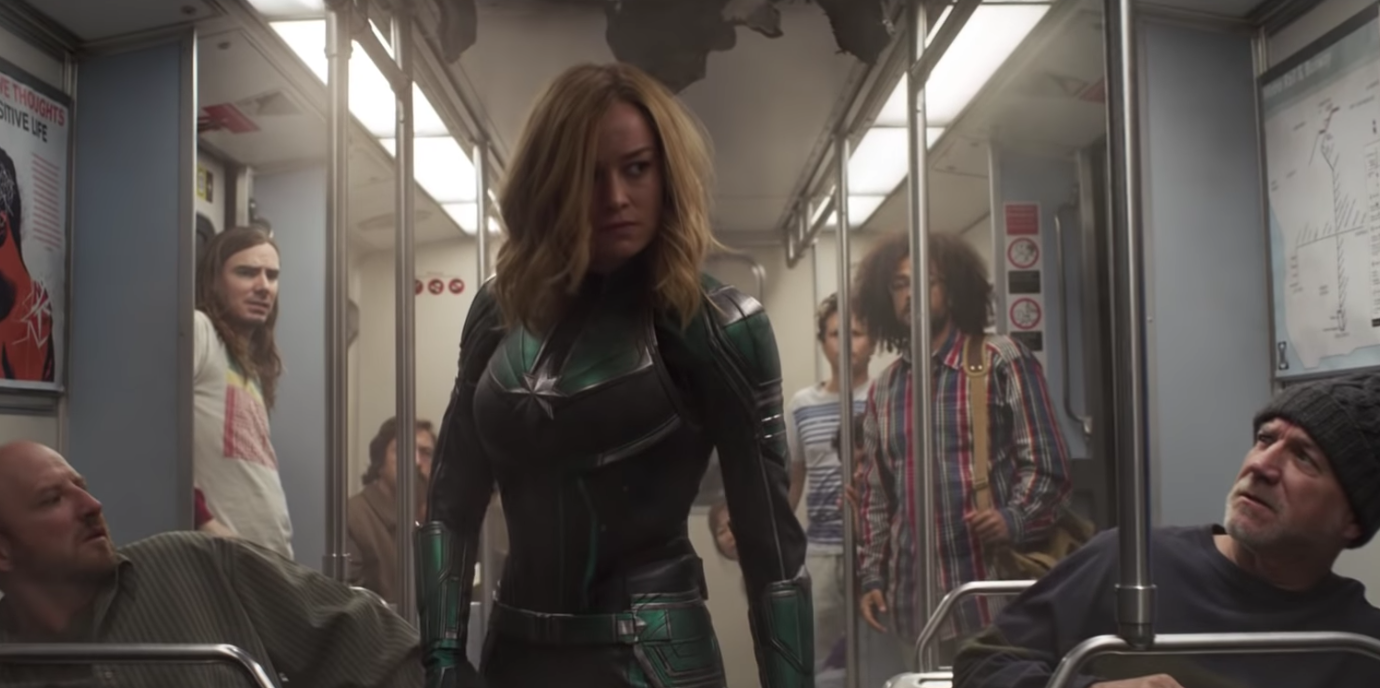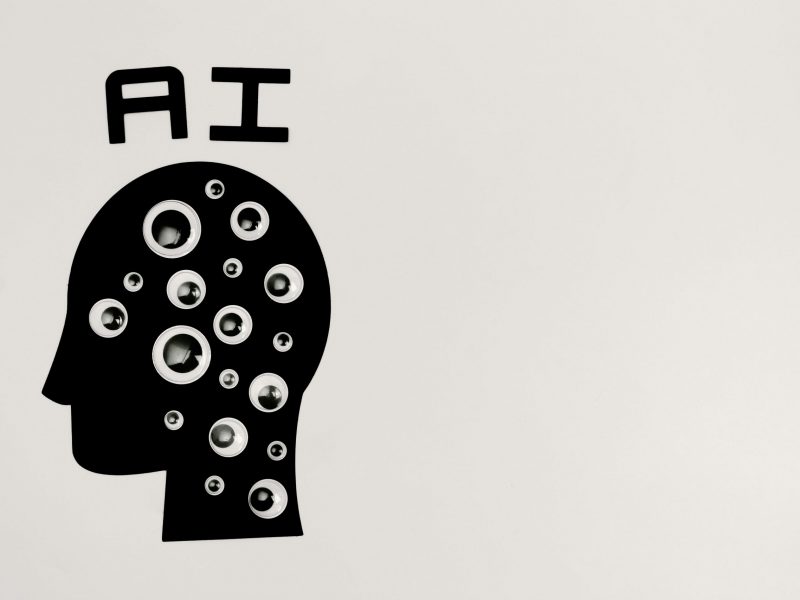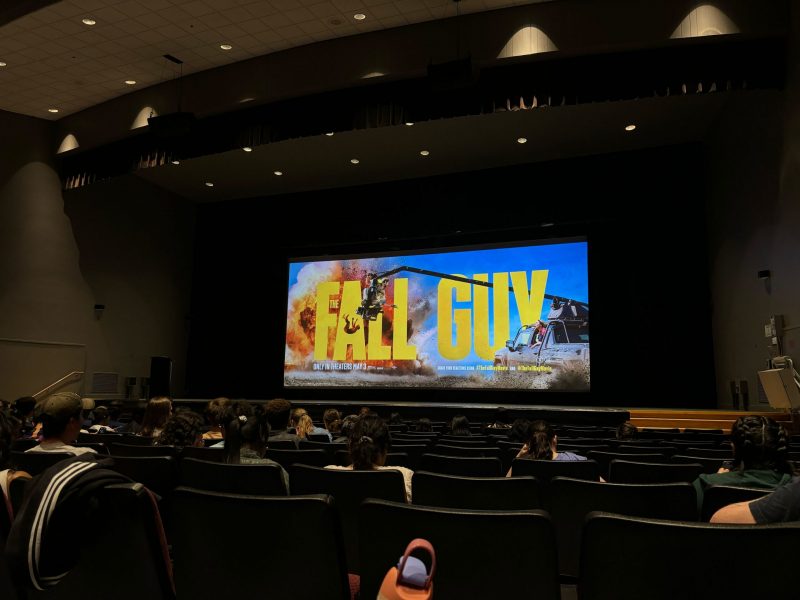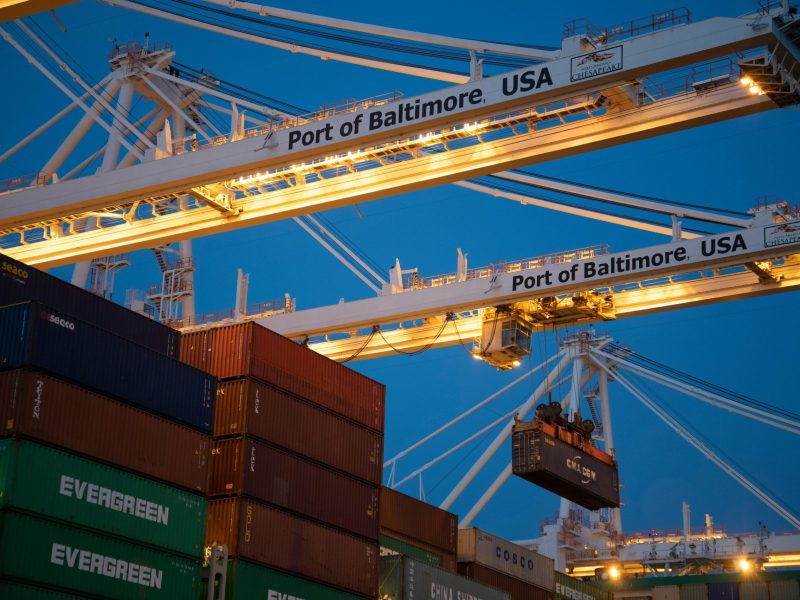Marvel’s female superhero debut has an incredible amount of heart and finds ways to bring strong humor and levity around moments of action and drama. Captain Marvel makes an energetic entrance into the cinematic canon, even though it is not quite as explosive as Marvel’s previous pioneering efforts.
The movie opens with Brie Larson as Vers (pronounced “Veers”), an intergalactic Kree warrior with the ability to shoot beams of energy from her hands. Vers trains with other members of the Kree to fight against the militant Skrulls, a green alien race that can shapeshift into other people. In the midst of the war, Vers also experiences visions of her forgotten past, which both the Kree and the Skrulls seem exceedingly interested in. The story truly kicks off when Vers crash-lands on Earth in the 1990s, when both she and the planet are far from prepared for an alien war.
The fragmented reality of the movie’s opening is a bit jolting, but it works. It puts the viewer in Vers’ shoes as she discovers she’s not actually Kree as she once thought, but actually a human Air Force pilot named Carol Danvers. Just like the character, until the audience learns more about the story, they’re forced into the action of the moment and have to deal with matters at hand. This makes both the humor and the drama hit genuinely, since we experience the movie in a similar fashion to the characters.
Though it may be a sci-fi superhero movie on the surface, at its core Captain Marvel feels like a 1990s buddy cop flick. Larson plays well with Samuel L. Jackson as a younger Nick Fury. Jackson returns with Clark Gregg as Phil Coulson as two of the agents for the budding S.H.I.E.L.D. organization. Larson and Jackson share moments of levity and banter as they drive the story forward with every scene.
The movie takes a handful of twists and turns, and though a few feel obvious, the bigger ones surprise well and add to Vers’ arc. There is rarely a moment where the movie hits you over the head with exposition or needless details. The story dives in and holds the viewer’s attention for its full run time, even if some spots in the story take longer to clear up.
Certain aspects of the movie tie in to plot points and arcs from all around the Marvel Cinematic Universe, but the movie never gets bogged down by these MacGuffins. Captain Marvel tells its own story while tying into the bigger picture, and ultimately ties up a handful of loose ends in the process.
Small aspects of the movie felt slightly unnecessary, such as the appearance of Lee Pace as Ronan (from the first Guardians of the Galaxy), as well as wink-wink references to some other movies in the MCU. These moments feel like an unimportant, though not unwelcome, seasoning to a film that didn’t really need it.
Perhaps most refreshing about Captain Marvel is its message. Yes, it is a female superhero movie, which is pioneering, even after Wonder Woman. However, gender identity is not a significant plot point. While Larson’s depiction certainly feels empowering, the movie doesn’t come across like it’s proud of itself, or saying, “Yeah, women can do this too, and we know that blows your mind.” It shows that Carol Danvers is a strong woman instead of telling you.
Larson portrays a likable, badass character with a relatable pluckiness and determination that should make the character appeal to everyone. The movie doesn’t give her an unnecessary love interest, making the story all her own. It’s a superhero movie. Period.
A solid hero in a solid movie is probably the exact appetizer that fans will need before they go to the highly anticipated Avengers: Endgame next month. But even if you’ve never seen an MCU movie before, Captain Marvel is still a worthy viewing for you.




